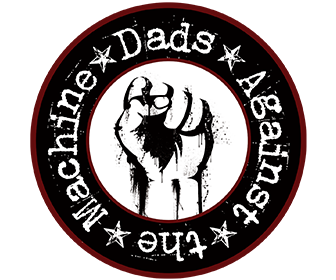The numbers don’t lie: single fathers are running financially stronger households than single mothers. This isn’t a knock against single moms—it’s just the reality of the situation, and it’s about time we acknowledge the facts. For years, we’ve been fed a narrative that single moms are somehow managing just fine, but when you pull back the curtain, the truth is clear: single dads are providing more stability for their kids, both financially and in terms of their living environments. So why is this happening, and what does it mean for the children being raised in these homes?
The Employment Gap
Let’s start with the basics. When it comes to work, single dads are outworking their single-mom counterparts. When we look at parents with other marital statuses—whether never married, divorced, separated, or widowed—the numbers favor dads. Fathers with these other marital statuses had a labor force participation rate of 89.0%, while mothers in the same situations were at 77.1%.
According to recent data, 74.3% of single dads are holding down full-time jobs, while only 51.4% of single mothers manage the same. That’s a massive gap, and it’s crucial because full-time employment means steady income, health benefits, and the ability to provide a more secure home for their children. The numbers back this up—only 13.8% of single-father households live below the poverty line, while nearly 30% of single-mother households are stuck there. These figures aren’t just stats—they represent real life for millions of kids growing up without financial stability.
Wealth Disparity: It’s Not Even Close
If the employment gap wasn’t enough to drive the point home, let’s talk about wealth. According to a report from the Federal Reserve Bank of St. Louis, the average net worth of a single mother is a shockingly low $7,000. Compare that to the $59,000 net worth of single men, and you start to see just how deep this divide goes. That’s over eight times the wealth. Wealth isn’t just about having extra money in the bank; it’s about being able to invest in your kids’ future—whether that’s through better education, access to healthcare, or simply providing a more stable living situation. Single dads, with their higher net worth, are more likely to give their kids these advantages.
- Single fathers, on average, have higher incomes than single mothers and are far less likely to be living at or below the poverty line—24% versus 43%.
Homeownership: A Clear Advantage for Dads
Now let’s get into something that really matters for long-term stability—homeownership. Across the 50 largest metropolitan areas in the U.S., there are about 1.53 million single-father households with children under 18, and of those, 754,000 are owner-occupied. That’s a homeownership rate of 49%. Compare that to the 4.23 million single-mother households, where only 34% are homeowners. In other words, single dads are far more likely to own their homes relative to their population size.
Owning a home means more than just a place to sleep at night. It provides kids with consistency—fewer moves, the same school, the same friends, and a familiar neighborhood. Kids in single-dad households are less likely to experience the instability that comes with renting, like constant relocations and the uncertainty of whether they’ll be able to stay in their current environment. This stability is key for a child’s emotional and academic development. Studies have shown time and again that kids who grow up in stable housing situations perform better in school and have better overall mental health. Single dads, by providing this consistency, are giving their kids a leg up in life that many single-mother households simply can’t match.
Why Are Dads Doing Better?
So, what’s behind this financial disparity between single dads and single moms? There are a few factors at play. First, men are more likely to work in industries that pay higher wages, even when they’re single parents. They’re also more likely to work longer hours or multiple jobs to make ends meet.
But let’s be real: this isn’t just about wages. It’s about mindset. Single fathers are more often focused on long-term financial goals, like building wealth, owning a home, and securing a future for their kids. They’re less likely to rely on government assistance and more likely to take personal responsibility for their household’s financial situation. This isn’t just some abstract concept—this is how kids in single-dad households end up doing better in the long run.
The System Can’t Ignore This Anymore
Despite all this evidence, society still tends to prop up the single-mother narrative, pushing the idea that moms are doing it all on their own. But the facts tell a different story. Single fathers are out there grinding, building wealth, and providing stability for their kids. Meanwhile, the system seems to overlook this, favoring moms in family court battles and child custody decisions, even though the data shows that single dads are often the ones creating more stable, financially secure homes.
The bottom line is simple: kids in single-father households are set up for better financial outcomes. These dads are working harder, owning more homes, and providing more consistency for their kids. It’s time to stop ignoring the reality and start recognizing the truth—single dads are doing it better.



























